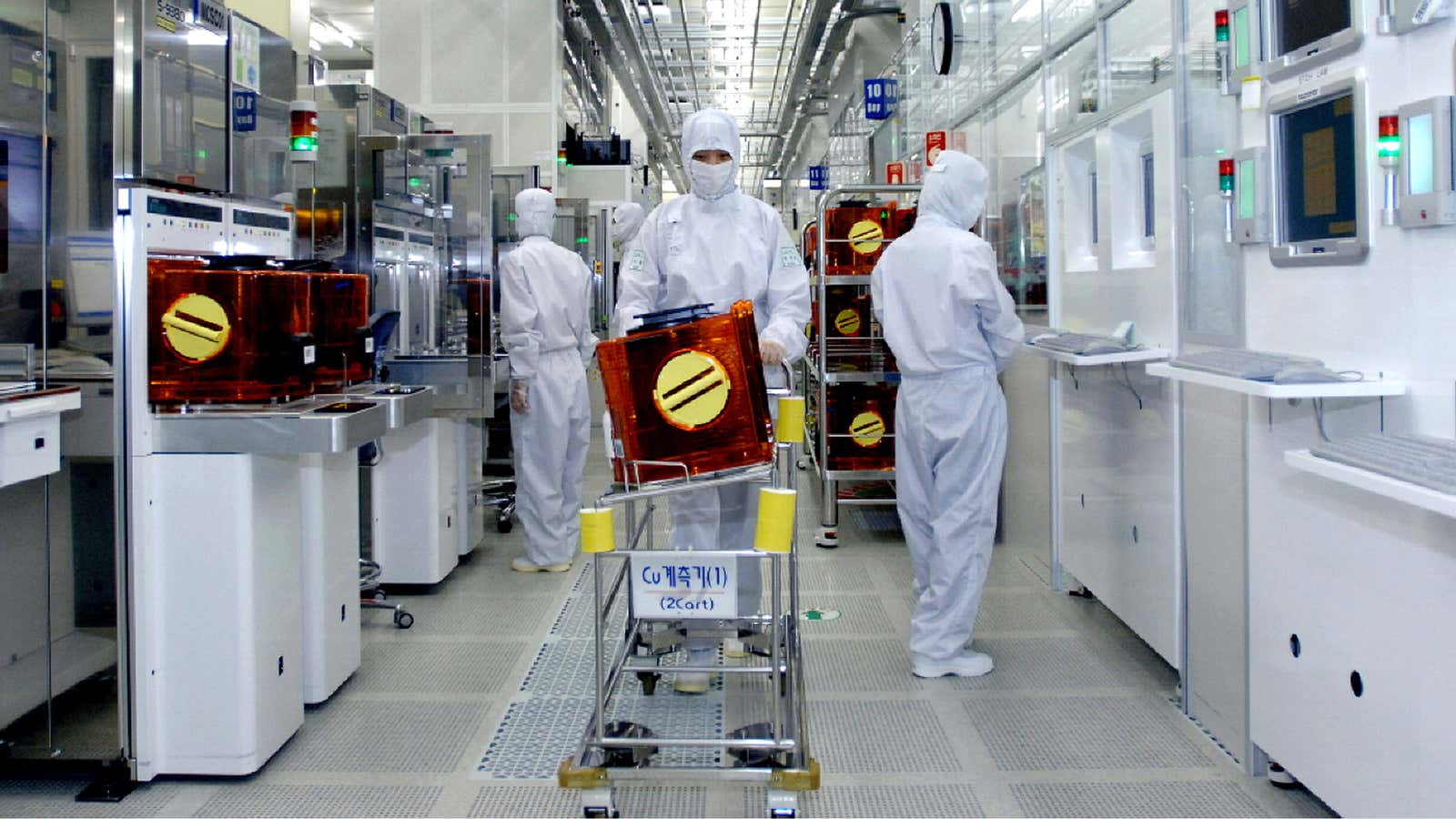The South Korean tech giant, facing sharp declines in profits from its smartphone division, is investing 15.6 trillion won ($15 billion) in a new semiconductor factory to build chips for mobile devices.
The timing of the announcement is no coincidence. Samsung releases guidance for its third-quarter results tomorrow, and analysts are bracing for the company’s biggest drop in operating profit in five years, as devices like the Samsung Galaxy get squeezed at the top of the market by Apple’s iPhone, and at the bottom by low-margin Chinese competitors (paywall) that also use Google’s Android operating system.
The new focus on chipmaking is a tacit acknowledgement that the company’s days of massive profits from selling its own smartphones—which currently make up about 60% of operating profits—may be drawing to a close. But the sprawling tech giant has other ways of profiting from the mobile device boom.
Even as it battles against rival smartphone makers, Samsung is also among their biggest suppliers, providing memory chips and processors for the iPhone, among many others. It makes about 30% of the A8 chips that go into Apple’s iPhone 6 and 6 Plus (it had hoped to be responsible for much more than that), and last week ZDNet reported that the company has also agreed to make Apple’s A9 chip, for use in next year’s iPhones.
The new Samsung plant could be configured to make either memory chips or processors, depending on market demand when the factory comes on line in 2017. By that time the global smartphone market will be even bigger than it is today—even if the current market leader’s logo is mostly on the inside.
